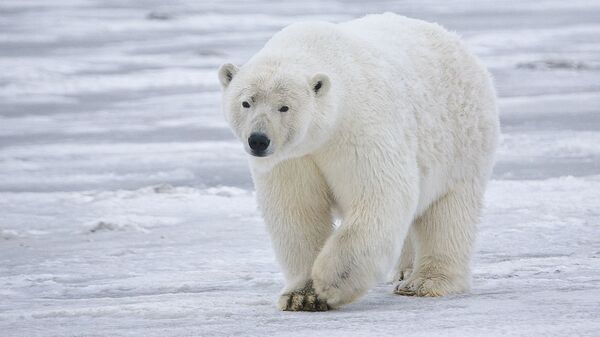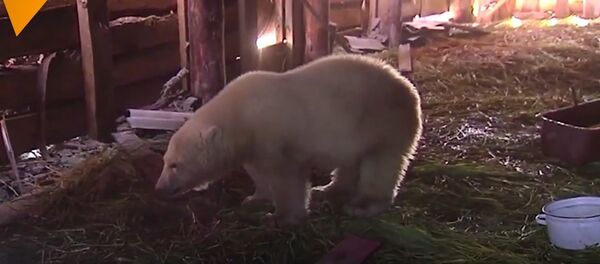MOSCOW (Sputnik) — The research added that other estimates predict that the number of polar bears in the world would either halve or would see an 80-percent decrease in the abovementioned period, but the probability of such pace of developments was significantly lower than in the first case.
"Ice-covered days declined in all subpopulation areas during 1979–2014… The estimated probabilities that reductions in the mean global population size of polar bears will be greater than 30% over three generations (35–41 years)… were 0.71 (range 0.20–0.95)," the research titled Conservation status of polar bears (Ursus maritimus) in relation to projected sea-ice declines that was published in the Biology Letters magazine said.
According to the research, the figures show that the species could be designated as "vulnerable," in line with the IUCN Red List of Threatened Species classification.


